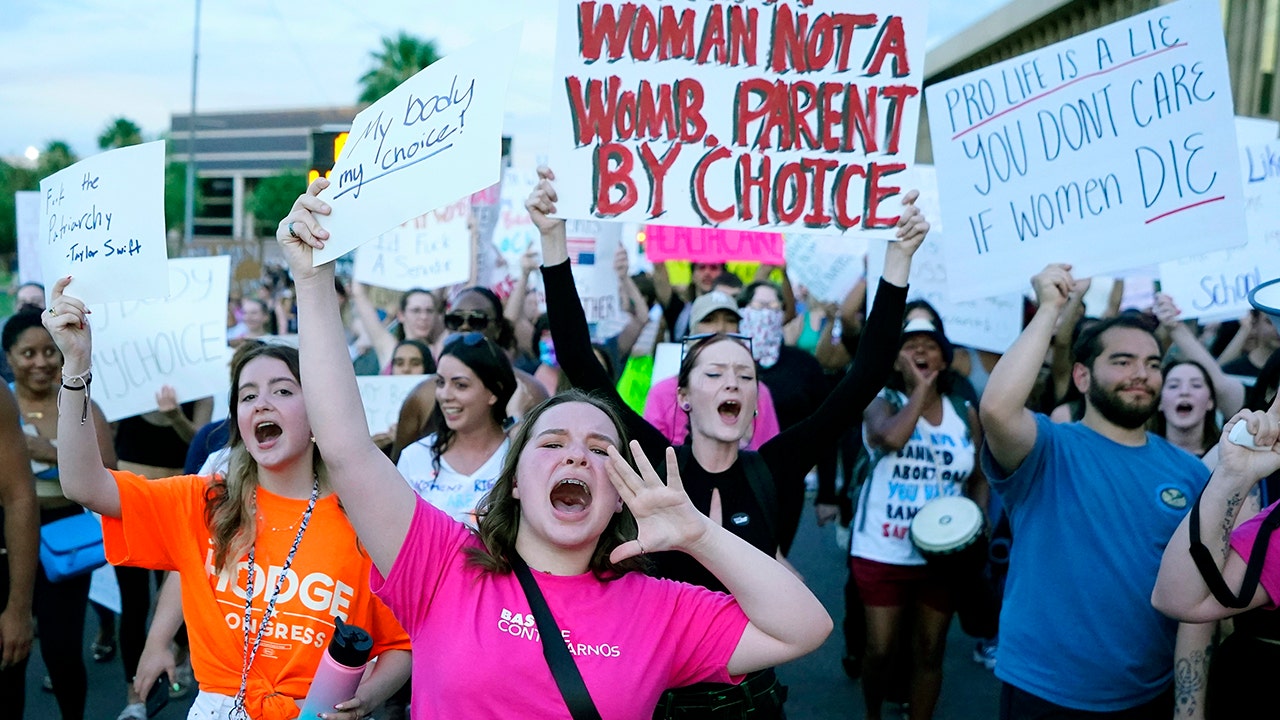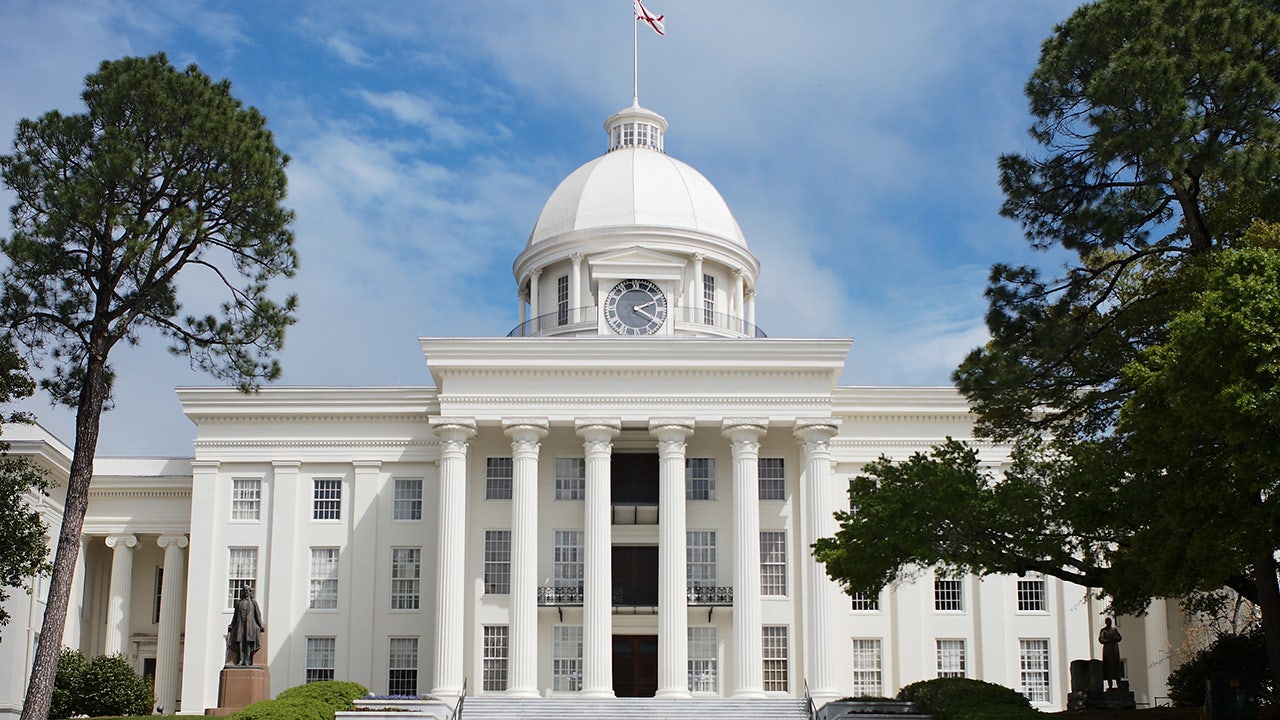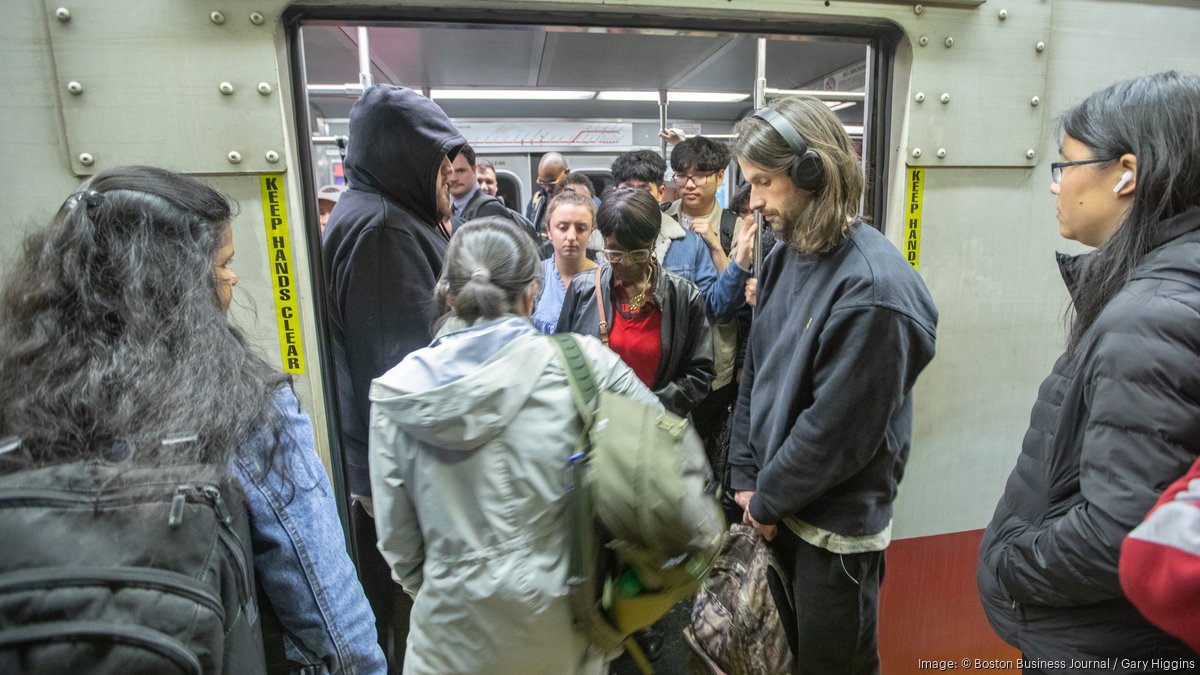Politics
NPR suspends journalist who publicly accused network of liberal bias

NPR has suspended a veteran editor who wrote an essay criticizing the public broadcaster for having what he described as a lack of politically diverse viewpoints.
Uri Berliner, an award-winning business journalist who has worked at the network for 25 years, will be off the job for five days without pay. Berliner acknowledged the suspension Monday in an interview with National Public Radio. He did not respond to The Times’ request for comment.
The suspension came after Berliner put a harsh spotlight on NPR with an April 9 opinion piece for the Substack newsletter the Free Press. He said the decline in NPR’s audience levels is due to a move toward liberal political advocacy and catering to “a distilled worldview of a very small segment of the U.S. population.” The overall thrust of the piece asserted that NPR has “lost America’s trust.”
An NPR representative said the network “does not comment on individual personnel matters, including discipline. We expect all of our employees to comply with NPR policies and procedures, which for our editorial staff includes the NPR Ethics Handbook.”
Berliner was told by management last week that he violated company policy by failing to secure its approval to supply work for other news outlets, according to an NPR news report by media correspondent David Folkenflik. Berliner was informed that he will be fired if he violates that policy again.
Berliner’s essay has been seized on by right-wing media outlets that frequently accuse NPR and other mainstream news sources of a liberal bias.
On Monday, conservative activists resurfaced years old social media posts by current NPR Chief Executive Katherine Maher, in which she expressed her disdain for former President Trump. In one 2020 post, she called Trump a racist.
Maher took on her NPR role in January. She previously headed the nonprofit Wikimedia Foundation, which operates Wikipedia, and has no previous experience in journalism. NPR has said Maher was not in an editorial role at the foundation when she made the social media posts, adding that she “is entitled to free speech as a private citizen.”
Berliner’s essay said the network began to lose its way after Trump’s 2016 election victory.
“I eagerly voted against Trump twice but felt we were obliged to cover him fairly,” Berliner wrote. “But what began as tough, straightforward coverage of a belligerent, truth-impaired president veered toward efforts to damage or topple Trump’s presidency.”
Berliner said the network overplayed the investigation of Russian collusion with the Trump campaign in the 2016 presidential election. He also said the news operation turned a blind eye to the story of the laptop abandoned by President Biden’s son Hunter in October 2020, out of concern that coverage of the matter would help reelect Trump.
Berliner was also critical of NPR’s coverage of the Israel-Hamas war and the origins of the COVID-19 virus, as well as the organization’s focus on race and identity, which he said “became paramount in nearly every aspect of the workplace.”
Edith Chapin, NPR’s chief news executive, rejected Berliner’s analysis in a memo to staff after his piece was published.
“We’re proud to stand behind the exceptional work that our desks and shows do to cover a wide range of challenging stories,” she wrote. “We believe that inclusion — among our staff, with our sourcing, and in our overall coverage — is critical to telling the nuanced stories of this country and our world.”

Politics
Which states could have abortion on the ballot in 2024?

- Since the U.S. Supreme Court overturned Roe v. Wade in 2022, most Republican-controlled states have implemented new abortion restrictions, and 14 ban it at every stage of pregnancy.
- Voters in 7 states have sided with abortion rights supporters on ballot measures.
- It is not yet clear how many states will vote in November on measures to preserve abortion access.
South Dakota advocates submitted petitions Wednesday in their effort to amend the state constitution to include the right to abortion, at least under some circumstances.
Signatures are also expected to be turned in Friday in Missouri for a ballot measure there.
The efforts in both states are part of a movement to put abortion rights questions to voters since the U.S. Supreme Court overturned Roe v. Wade and removed the nationwide right to abortion.
OUTSPOKEN PRO-ABORTION GOVERNOR GETS SPEAKING SLOT AT VATICAN SUMMIT
Since that 2022 decision, most Republican-controlled states have new abortion restrictions in effect, including 14 that ban it at every stage of pregnancy. Most Democrat-dominated states have laws or executive orders to protect access.
Additionally, voters in seven states — California, Kansas, Kentucky, Michigan, Montana, Ohio and Vermont — have sided with abortion rights supporters on ballot measures.
It’s not clear yet how many states will vote on measures to enshrine abortion access in November. In some, the question is whether amendment supporters can get enough valid signatures. In others, it’s up to the legislature. And there’s legal wrangling in the process in some states.
Some of the efforts have already failed to reach ballots. Wisconsin’s legislative session ended without a state Senate vote on a measure that the House approved to ask voters to ban abortion after 14 weeks. Iowa lawmakers did not approve a measure before their session ended this year to ask voters to find that there’s no constitutional right to abortion; Pennsylvania lawmakers previously pursued a similar amendment, but it’s not expected to be added to the ballot there this year. A Louisiana measure to enshrine abortion rights in the state constitution died in committee and one in Maine effectively died when it fell short of receiving the approval of two-thirds of the House.
Protesters shout as they join thousands marching around the Arizona Capitol after the Supreme Court decision to overturn the landmark Roe v. Wade abortion decision Friday, June 24, 2022, in Phoenix. (AP Photo/Ross D. Franklin)
WHAT’S SECURELY ON 2024 BALLOTS?
FLORIDA
The state Supreme Court ruled on April 1 that a ballot measure to legalize abortion until viability could go on the ballot despite a legal challenge from state Attorney General Ashley Moody, who argued that there are differing views on the meaning of “viability” and that some key terms in the proposed measure are not properly defined.
Advocates collected nearly a million signatures to put a state constitutional amendment to legalize abortion until viability on the ballot, surpassing the nearly 892,000 required.
Sixty percent of voters would have to agree for it to take effect.
Abortion is illegal in Florida after the first six weeks of pregnancy under a law that took effect May 1.
MARYLAND
Maryland voters this year will also be asked whether to enshrine the right for women to end their pregnancies in the state’s constitution in a ballot question put before them by lawmakers last year. The state already protects the right to abortion under state law and Democrats outnumber Republicans 2-1. Abortion is allowed in Maryland until viability.
NEW YORK
New York lawmakers agreed to ask voters to bar discrimination on the basis of pregnancy, pregnancy outcome and reproductive healthcare as part of a broader equal protection amendment. It would also bar discrimination on the basis of sex, sexual orientation, gender identity, national origin and disability. The language of the constitutional amendment does not mention abortion specifically. Abortion is allowed in New York law until viability.
WHERE ELSE COULD ABORTION BE ON THE BALLOT IN 2024?
ARIZONA
A signature drive is underway to add a constitutional right to abortion in Arizona. Under the measure, the state would not be able to ban abortion until the fetus is viable, with later abortions allowed to protect a woman’s physical or mental health. Supporters must gather nearly 384,000 valid signatures by July 4.
Abortion is currently legal for the first 15 weeks of pregnancy in Arizona. An Arizona Supreme Court ruling in April said enforcement could begin soon for a near-total ban that was already on the books. But on Thursday, the governor signed a bill repealing that law, which is still expected to be in effect for a time.
ARKANSAS
Proponents of an amendment to allow abortion in many cases have until July 5 to gather nearly 91,000 valid signatures to get it on the Nov. 5 ballot. The measure would bar laws banning abortion in the first 20 weeks of gestation and allow abortion later in pregnancy in cases of rape, incest, threats to the woman’s health or life, or if the fetus would be unlikely to survive birth. Because it allows limits as soon as 20 weeks, the proposal does not have the support of Planned Parenthood Great Plains, which includes Arkansas. The state has a ban on abortion at all stages of pregnancy with narrow exceptions.
COLORADO
Advocates for a ballot measure to add constitutional protections for abortion, including requiring Medicaid and private health insurers to cover it, have turned in signatures to have it placed on the ballot. The secretary of state’s office has until May 17 to determine whether there are enough valid signatures. More than 124,000 are required.
Amending the state constitution requires support of 55% of voters.
Those backing a dueling measure — a law to ban abortion — did not turn in signatures, and the measure will not go before voters.
Abortion is legal at all stages of pregnancy in Colorado.
MISSOURI
Missouri advocates for abortion access are expected to turn in signatures on Friday, two days ahead of their deadline to submit more than 171,000 to ask voters to approve a constitutional amendment to guarantee abortion until viability.
A group of moderate Republicans have abandoned for this year efforts for an alternate amendment that would have allowed abortion up to 12 weeks and after that with only limited exceptions.
Abortion is currently banned in Missouri at all stages of pregnancy with limited exceptions.
MONTANA
Abortion rights proponents in Montana have proposed a constitutional amendment that would bar the government from denying the right to abortion before viability or when it’s necessary to protect the life or health of the pregnant person. After a legal battle over the ballot language, the Montana Supreme Court on April 1 wrote its version of the language that would appear on the ballot if supporters gather more than 60,000 signatures by June 21. Abortion is legal until viability in Montana under a 1999 Montana Supreme Court opinion.
NEBRASKA
Advocates are trying to collect about 125,000 signatures needed by July 5 to put a constitutional amendment before voters to protect abortion rights until fetal viability. A competing petition effort would add a constitutional amendment that mirrors a law adopted last year that bans abortion after 12 weeks, with some exceptions.
NEVADA
Signatures are being gathered to place an abortion access amendment on Nevada’s ballot in November. Under the amendment, abortion access for the first 24 weeks of pregnancy or later to protect the health of the pregnant person, which is already assured under a 1990 law, would be enshrined in the constitution. It requires more than 102,000 valid signatures by June 26 to place the measure on the ballot. Voters would need to approve it in both 2024 and 2026 to change the constitution.
The measure is one of several attempts by Nevada abortion rights groups to get a ballot question before voters in 2024 or 2026.
SOUTH DAKOTA
South Dakota advocates said they submitted more than 55,000 signatures — 20,000 more than required — to get a measure on the ballot that would loosen restrictions but does not go as far as many abortion rights advocates would like. It would ban any restrictions on abortion in the first trimester of pregnancy. It would allow the state in the second trimester to “regulate the pregnant woman’s abortion decision and its effectuation only in ways that are reasonably related to the physical health of the pregnant woman.” An abortion ban would be allowed in the third trimester, as long as it included exceptions for the life and health of the woman. Planned Parenthood is not supporting the measure.
Abortion in the state is now banned at all stages of pregnancy with narrow exceptions.
Politics
Gazans thank U.S. campus protesters. Israel condemns what it sees as 'Nazi-like behavior'

People across the Gaza Strip sent messages of appreciation to demonstrators on U.S. campuses, thanking them for their protests against the Israel-Hamas war.
Children, parents and medical staff assembled in the courtyard before Al Aqsa Martyrs Hospital in central Gaza on Wednesday, with many of them unfurling banners carrying university insignia with “Thank you for supporting our cause.”
Others brandished signs that said, “Your voices pierce the wall of silence and reach the victims in Gaza,” “The killing of children in Gaza must stop” and “Palestine is everywhere.”
In recent days, as protests and encampments have spread on dozens of U.S. campuses, people in Gaza have taken note of the outpouring of solidarity, both in the United States and abroad.
They in turn have responded — on social media, in rallies, in videos, by words scribbled on tents — with messages of support of their own. Many view the protests as a positive omen in a time of unrelenting bleakness in Gaza.
At another event, in Deir al Balah, others hoped for similar protests to spread in European and Arab countries.
“This was a gathering of thanks and pride for the efforts by students in American universities,” said Baraa Safi, an English teacher interviewed by a local broadcaster on Wednesday.
“It makes a big difference in our lives and it gives us hope that people are still hearing us; that people want to help us, stand with us and end the war we’re living through every day.”
Universities across the U.S. have been rocked since mid-April by demonstrations demanding universities’ endowments divest from Israel-linked investments and companies and calling on Israel to end its bombardment and ground attacks in the Palestinian territory.
Israel’s war on the Hamas militant group has lasted nearly seven months and has killed more than 34,000 people and wounded more than 77,000, according to Hamas health authorities in Gaza. The figures do not distinguish between civilians and combatants, but officials, aid groups and activists say most of the casualties are women and children.
Israel launched its military offensive in Gaza Strip after the Oct. 7 attack, when Hamas operatives stormed more than 20 sites in southern Israel, killing roughly 1,200 people and taking about 250 hostage. Slightly more than half of the hostages are believed to remain in Gaza, including 34 that are presumed dead by Israeli authorities.
Israel’s ambassador to the United Nations characterized the U.S. campus protests as “the murderous cries of the pro-Palestinian mobs” and castigated universities for allowing “Nazi-like behavior.”
“We always knew that Hamas hides in schools,” Gilad Erdan said in a speech to the U.N.’s General Assembly on Wednesday. “We just didn’t realize that it’s not only schools in Gaza. It’s also Harvard, Columbia and many elite universities.”
He also accused the U.N. of spreading “anti-Israel vitriol” and said the organization’s “days were numbered.”
The protests in the U.S. have added to domestic and international pressure on President Biden to push through a deal between Hamas and Israel that would end the fighting and release hostages and other detainees.
On Wednesday, Secretary of State Antony J. Blinken said “there is a proposal on the table” and “the time is now” for a deal. He blamed Hamas for the delay, a charge the group’s leaders denied.
On Thursday, Hamas said its negotiating team would return to Egypt soon for additional talks and a response to a proposal made this week.
The group’s chief, Ismail Haniyeh, said in a call Thursday to Qatari Emir Sheikh Tamim bin Hamad Al Thani that Hamas was studying the cease-fire proposal with a “positive spirit.”
Negotiations have stumbled over the permanence of a cease-fire and whether the displaced will be able to return to their homes in Gaza. Mediators have offered a 40-day cease-fire and exchange of Israeli hostages and many Palestinian detainees.
Politics
Alabama lawmakers advance bill letting inmates speak at parole hearings

A legislative committee on Thursday advanced a bill to allow state inmates, for the first time, to speak by phone or video conference at their parole hearings.
The House Judiciary Committee approved the bill after adding an amendment to give victims and law enforcement officials the option to also participate by electronic means instead of driving to Montgomery for the parole hearing.
The bill, which was approved in the Senate without a dissenting vote, now moves to the Alabama House of Representatives to be considered in the final three days of the legislative session.
ALABAMA LAWMAKERS EYE GAMBLING COMPROMISE AS LEGISLATIVE SESSION NEARS ITS END
Alabama is one of two states that do not allow inmates to speak at parole hearings.
“SB 312 gives the incarcerated inmate the ability to participate in the hearing and more importantly, it gives the Parole Board another opportunity or an opportunity to question that inmate,” Republican Sen. Will Barfoot, the bill sponsor, said.
Exterior view of the Alabama State Capitol on March 22, 2020 in Montgomery, Alabama. (Taylor Hill/Getty Images)
The approval came after earlier disagreements over a proposal that would have weakened the bill by letting the Parole Board decide whether inmates could participate.
Wanda Miller, executive director of VOCAL, a victims advocacy group, said her organization opposes the bill because it believes the current system is adequate. Miller said victim advocacy groups had suggested the amendment to allow victims and law enforcement officials to also speak by phone or video conference.
Barfoot said that will make it easier for victims and law enforcement officials to participate in hearings instead of “driving sometimes three hours to sit through a 10- or 15-minute hearing.”
If approved, the measure would become effective on Oct. 1.
-

 News1 week ago
News1 week agoLarry Webb’s deathbed confession solves 2000 cold case murder of Susan and Natasha Carter, 10, whose remains were found hours after he died
-

 World1 week ago
World1 week agoHaiti Prime Minister Ariel Henry resigns, transitional council takes power
-

 News1 week ago
News1 week agoFirst cargo ship passes through new channel since Baltimore bridge collapse
-

 World1 week ago
World1 week agoUS secretly sent long-range ATACMS weapons to Ukraine
-

 World1 week ago
World1 week agoSpanish PM Pedro Sanchez suspends public duties to 'reflect'
-

 News1 week ago
News1 week agoAmerican Airlines passenger alleges discrimination over use of first-class restroom
-

 Movie Reviews1 week ago
Movie Reviews1 week agoHumane (2024) – Movie Review
-

 Education1 week ago
Education1 week agoVideo: Johnson Condemns Pro-Palestinian Protests at Columbia University













